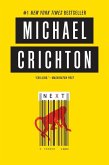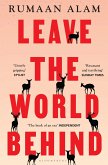*Man Booker International Prize finalist*
Brave and ingenious. The New York Times
Gripping, darkly humorous . . . profound. Phil Klay, bestselling author and National Book Award winner for Redeployment
Extraordinary . . . A devastating but essential read. Kevin Powers, bestselling author and National Book Award finalist for The Yellow Birds
From the rubble-strewn streets of U.S.-occupied Baghdad, Hadi a scavenger and an oddball fixture at a local café collects human body parts and stitches them together to create a corpse. His goal, he claims, is for the government to recognize the parts as people and to give them proper burial. But when the corpse goes missing, a wave of eerie murders sweeps the city, and reports stream in of a horrendous-looking criminal who, though shot, cannot be killed. Hadi soon realizes he s created a monster, one that needs human flesh to survive first from the guilty, and then from anyone in its path. A prizewinning novel by Baghdad s new literary star (The New York Times), Frankenstein in Baghdad captures with white-knuckle horror and black humor the surreal reality of contemporary Iraq.
Hinweis: Dieser Artikel kann nur an eine deutsche Lieferadresse ausgeliefert werden.
Brave and ingenious. The New York Times
Gripping, darkly humorous . . . profound. Phil Klay, bestselling author and National Book Award winner for Redeployment
Extraordinary . . . A devastating but essential read. Kevin Powers, bestselling author and National Book Award finalist for The Yellow Birds
From the rubble-strewn streets of U.S.-occupied Baghdad, Hadi a scavenger and an oddball fixture at a local café collects human body parts and stitches them together to create a corpse. His goal, he claims, is for the government to recognize the parts as people and to give them proper burial. But when the corpse goes missing, a wave of eerie murders sweeps the city, and reports stream in of a horrendous-looking criminal who, though shot, cannot be killed. Hadi soon realizes he s created a monster, one that needs human flesh to survive first from the guilty, and then from anyone in its path. A prizewinning novel by Baghdad s new literary star (The New York Times), Frankenstein in Baghdad captures with white-knuckle horror and black humor the surreal reality of contemporary Iraq.
Hinweis: Dieser Artikel kann nur an eine deutsche Lieferadresse ausgeliefert werden.

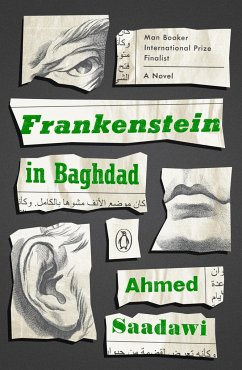
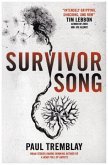

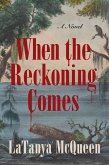
![The Cabin at the End of the World [Movie Tie-In] The Cabin at the End of the World [Movie Tie-In]](https://bilder.buecher.de/produkte/64/64697/64697232m.jpg)

